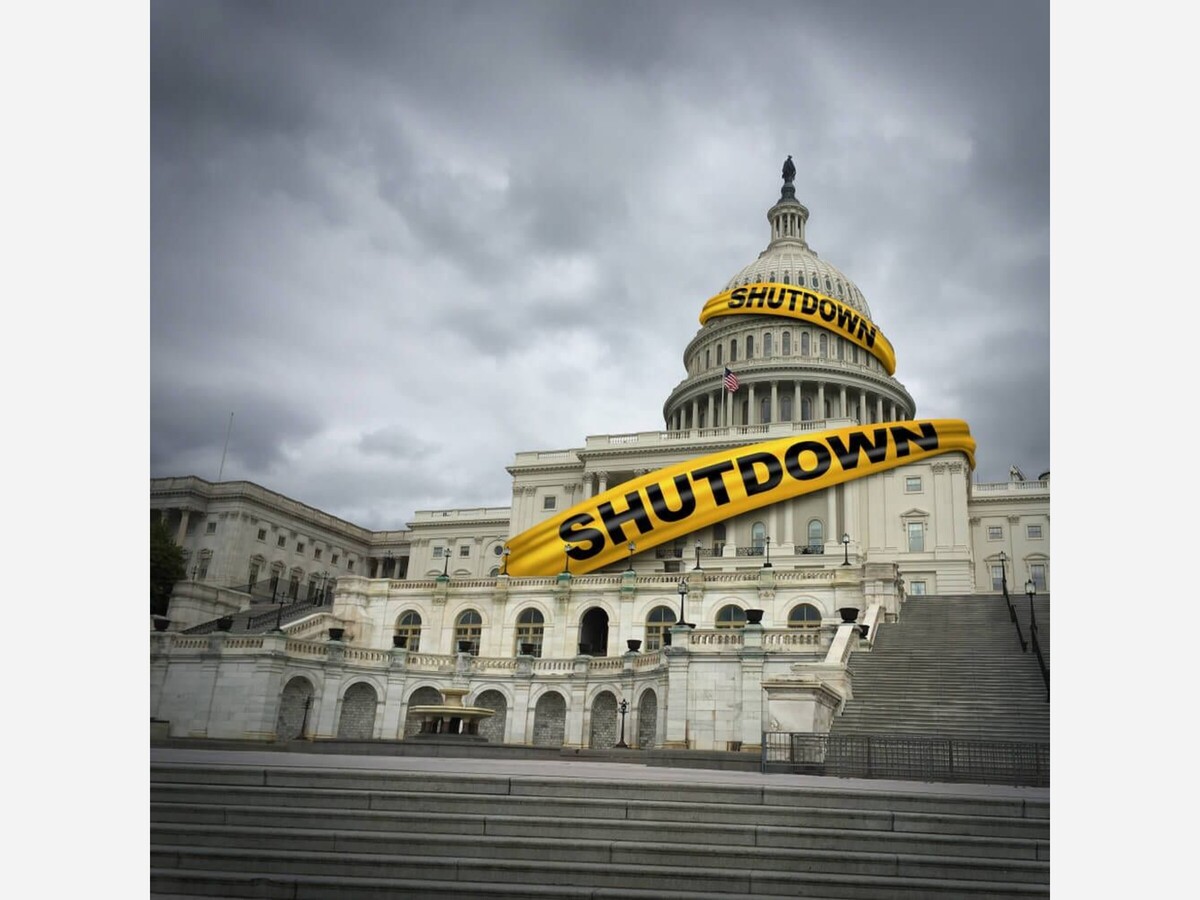Image


Beginning October 1st, 2023, the U.S government is headed into a shutdown, unless Congress does something soon. Government funding will end on 12:01 am Sunday and lawmakers are still divided over government spending plans. This has led many Americans who rely on federal paychecks and government operations to be concerned.
What is a Government Shutdown?
In our government, Congress is in charge of all federal spending. By October 1st each year, Congress passes spending bills, specifically twelve, for the new fiscal year. The bills must be passed in both the House and the Senate before the president can sign them into law. If the bills aren’t passed by the start of the fiscal year, then the government runs out of funding and all nonessential government functions will stop.
Why is this Happening?
As stated before, Congress must pass twelve spending bills by the start of each fiscal year. So far, only one has been passed in the House and none have been passed in the Senate. But this isn’t the end all. If Congress runs out of time, they can pass a temporary short-term funding extension to give themselves more time. Both the House and Senate have said that they want to pass a short-term bill, also known as a continuing resolution (CR) but both have yet to do so. If nothing is passed by October 1st, 12:00 am, the shutdown will begin. It’s hard to know when the shutdown would end. The last shutdown, which stretched from December 2018 to January 2019, lasted 35 days, the longest shutdown the US government has seen.
Who and What Does This Affect?
During the shutdown, the government would be unable to pay millions of federal government workers. Many workers could be furloughed or even asked to work without pay. During the last shutdown, Air traffic and airport workers were expected to work without pay, which led to many calling in sick. Along with this, Congress, military, and Pentagon workers will also be expected to work as their roles are considered necessary.
In addition, food assistance programs can be expected to stop. Assistance programs run by the Agriculture Department like the Women, Infants, and Children (WIC) program are preparing for the 7 million people who rely on WIC to lose access during the shutdown. Though, many will feel a staggered impact because many states have their own funds which they can use to continue the programs for the time being. Those who rely on the Supplemental Food Assistance Program (SNAP) will still receive their October assistance, but it is unknown how future months will be affected.
On the other hand though, Social Security payments will still be going out as it is seen as mandatory spended and not funded through the twelve spending bills that Congress needs to pass. Federal health care and health insurance like Medicare and the Indian Health Service are also seen as mandatory spending and therefore will continue to function. Nonetheless, some community health centers which get their funding from the federal government might begin to have their funding interrupted.